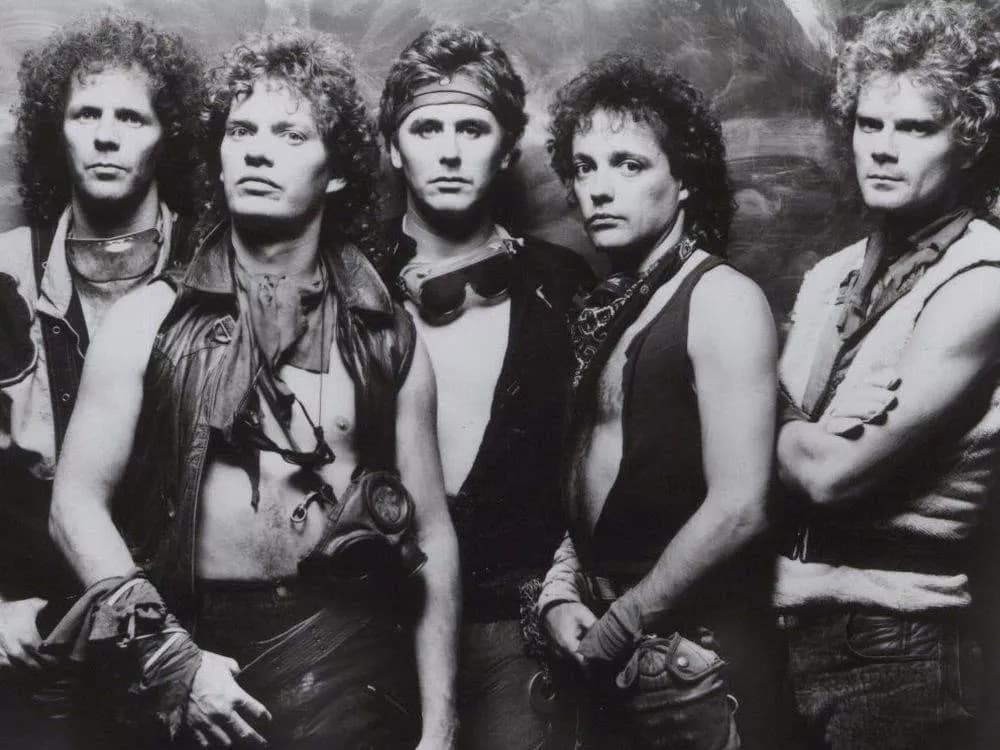
The Unmistakable Radio Cry Unleashing Restless Energy and Demanding Freedom
Remember the dawn of the 80s? As the gritty rock sounds of the 70s began to morph, a new wave of bands emerged, armed with synthesizers alongside their guitars, crafting a sound that was polished, powerful, and perfectly suited for the airwaves and burgeoning music television. Bursting out of Canada with an undeniable energy and a look that screamed ‘new decade’ (think headbands and red leather pants!), came Loverboy. In 1980, they unleashed their self-titled debut album, Loverboy, and with it, a single that became an inescapable, electrifying anthem of youthful impatience: “Turn Me Loose”. This wasn’t just a song; it was a declaration, a raw plea that rocketed up the charts, hitting the Top 10 in their native Canada (#7 RPM) and significantly breaking into the US market (#35 Billboard Hot 100, and a powerful #6 on the Mainstream Rock chart).
The story of Loverboy is one of persistence meeting preparation. Formed in Calgary in 1979, the core partnership of vocalist Mike Reno, with his distinctively powerful tenor, and guitarist Paul Dean, known for his sharp, melodic riffs, quickly recruited keyboardist Doug Johnson, bassist Scott Smith, and drummer Matt Frenette. Initially facing rejection from American record labels, they found a home on Columbia Records Canada. Crucially, they teamed up with producer Bruce Fairbairn, a fellow Canadian who would soon become legendary for his ability to capture explosive rock energy with radio-ready clarity. Together, they honed a sound that seamlessly blended hard rock muscle with sleek, modern synthesizer hooks – a formula that would define the early 80s arena rock landscape.
“Turn Me Loose” was the sound of that formula hitting critical mass. Who can forget that instantly recognizable opening? Doug Johnson’s insistent keyboard riff, almost like an urgent Morse code signal, immediately grabs your attention before the band kicks in with full force – Matt Frenette’s driving beat, Scott Smith’s pulsing bassline, and Paul Dean’s chopping guitar chords creating a tense, coiled energy. And then comes Mike Reno, his voice filled with a palpable sense of frustration and yearning: “I gotta do it my way / Or no way at all!” It’s the sound of someone pushed to the breaking point, demanding release from whatever situation – or relationship – is holding them back.
The lyrics are direct, almost brutally honest in their simplicity: “Why don’t you turn me loose? / … / ‘Cause you don’t know what I’m goin’ through.” It speaks to that universal feeling, particularly potent in youth, of being misunderstood, constrained, desperate for autonomy. There’s an edge to Reno’s delivery, a combination of vulnerability and defiance that resonated deeply with listeners. This wasn’t a poetic metaphor; it was a gut-level cry for freedom, for the right to make one’s own mistakes and find one’s own path. The energy builds relentlessly towards the impassioned chorus, a perfect singalong moment fueled by pure, unadulterated emotion.
“Turn Me Loose” became more than just Loverboy’s breakthrough hit; it became an emblem of its time. It was the sound of windows rolled down on a Friday night, the soundtrack to countless escapes, real or imagined. It captured the restless spirit of a generation eager to break free from old constraints and embrace the possibilities of a new decade. Produced with Bruce Fairbairn’s signature punch and polish, it still crackles with urgency today, a timeless anthem for anyone who’s ever felt the burning need to simply be let go. It remains a cornerstone of early 80s rock radio and a defining moment for a band that perfectly captured the sound and feeling of their era.